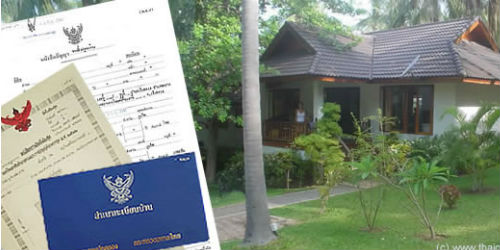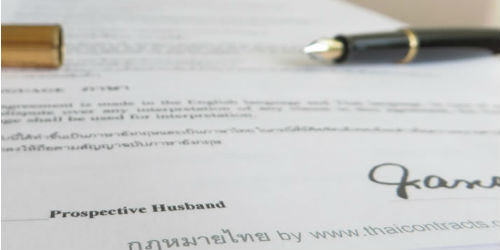Lease or leasehold term in Thailand = 30 years
Lease is governed by the civil code sections rent of property' or in Thai เช่าทรัพย์.
Section 540. The duration of a rent of immovable property cannot exceed thirty years. If it is made for a longer period, such period shall be reduced to thirty years. The aforesaid period may be renewed, but it must not exceed thirty years from the time of renewal.
In Thai มาตรา 540 อันอสังหาริมทรัพย์ ท่านห้ามมิให้เช่ากันเป็นกำหนดเวลาเกินกว่า สามสิบปี ถ้าได้ทำสัญญากันไว้เป็นกำหนดเวลานานกว่านั้นท่านก็ให้ลดลงมาเป็นสามสิบปี
A renewal term of a 30 year lease is allowed, but only at the end of the first term. If the lease would say the lease has a term of 90 years (by a 30 year lease with 2 renewals in it) then the term would by law be reduced to 30 years. Any renewal option is not a guaranteed lease right, actually it is not even a lease right protected by section 569 (supreme court ruling), but a personal promise of the original lessor and party to the contract! A promise by the current owner to give you a new lease when your registered 30 year lease runs out. The renewal option will not (automatically) follow the lease when ownership is transferred during the term, in fact it does not even make a difference if this promise is written in the lease registered with the land department or in a separate contract or addendum to the lease (not registered with the land department).
Transfer of ownership does not break the lease
Section 569. A contract of rent of immovable property is not extinguished by the transfer of ownership of the property hired. The transferee is entitled to the rights and is subjected to the duties of the transferor towards the tenant.
In Thai มาตรา 569 อันสัญญาเช่าอสังหาริมทรัพย์นั้นย่อมไม่ระงับไปเพราะเหตุ โอนกรรมสิทธิ์ทรัพย์สินซึ่งให้เช่า ผู้รับโอนย่อมรับไปทั้งสิทธิและหน้าที่ของผู้โอนซึ่งมีต่อผู้เช่านั้นด้วย
It is important to understand that section 569 only applies to or protects what is under Thai rent of property laws considered actual rental rights and obligations. In general, and especially for the content of long term lease contracts aimed at foreigners, not everything that is written in a lease always follows the lease when ownership of the property leased is transferred or is protected by law. This 90 year lease does not exist in the Civil and Commercial Code nor Supreme Court judgments but is merely a creation of the property development sector in Thailand suggesting a longer term, but in fact these are all 30 year leases with a very weak and legally unprotected promise to renew the lease when it runs out after 30 years.
See also


